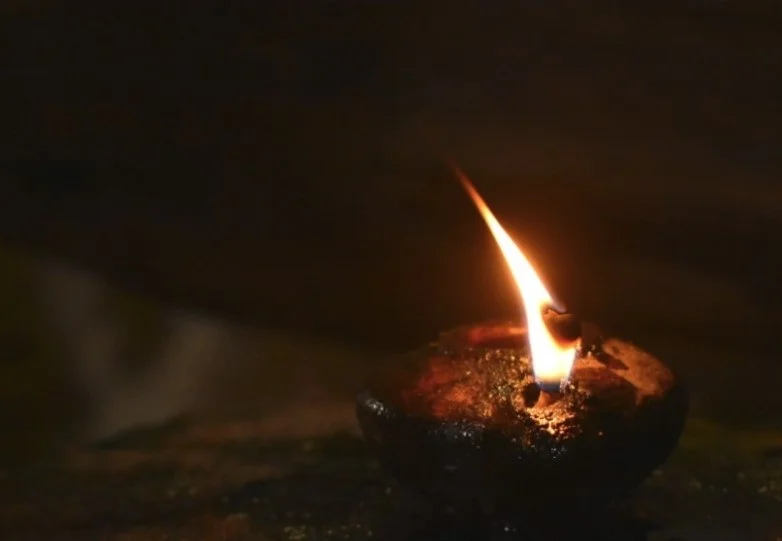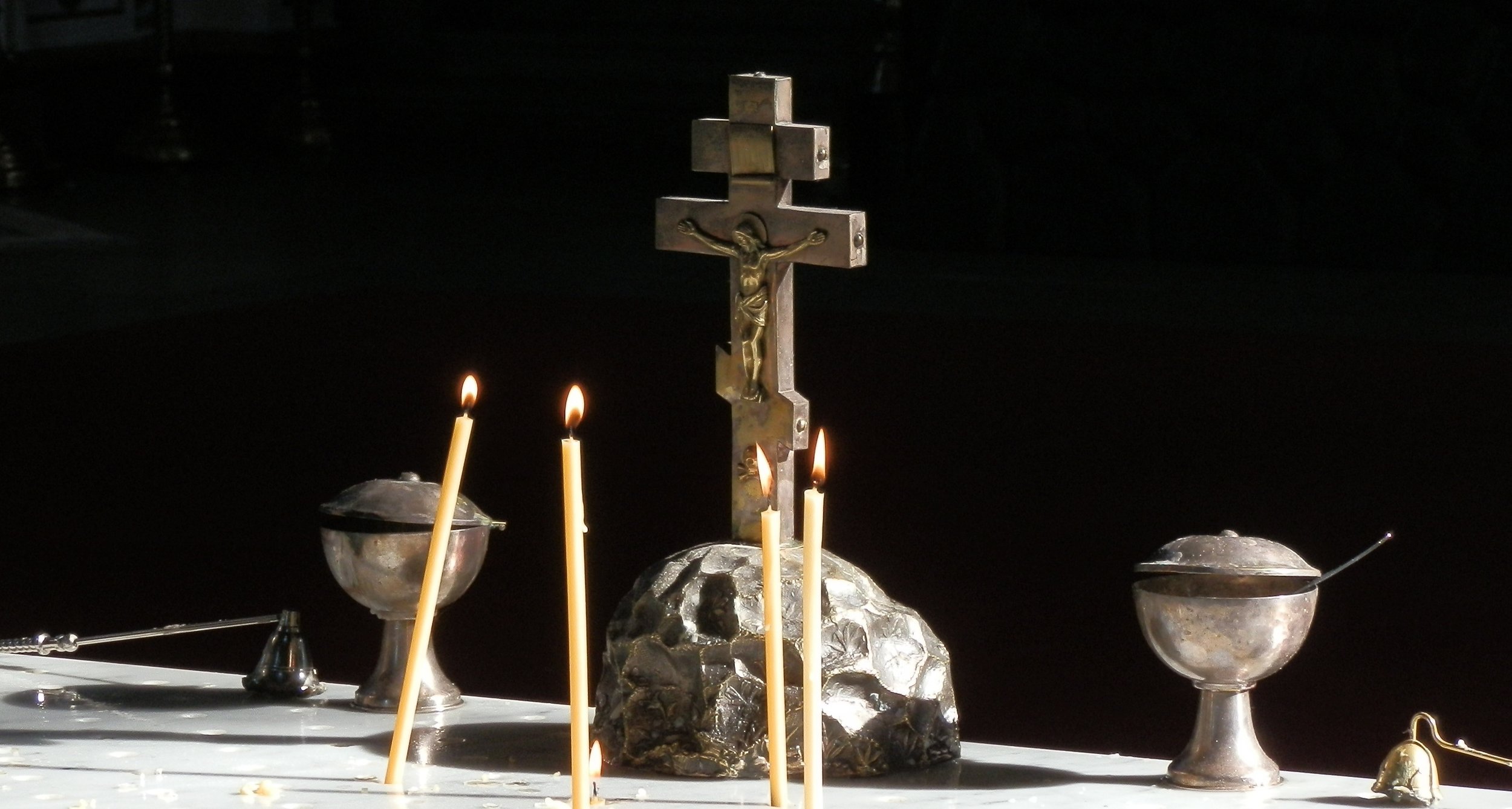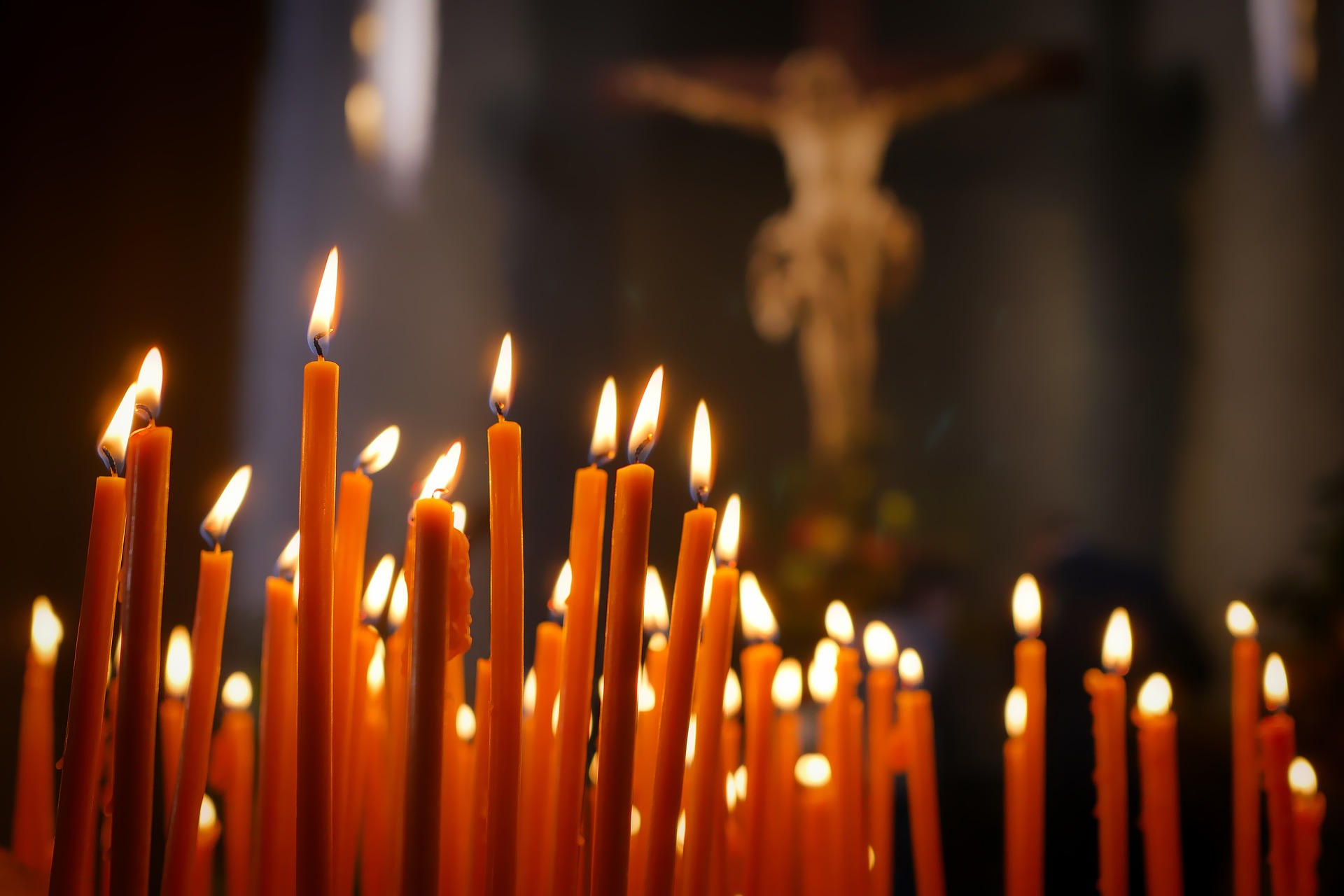Healing Atonement
Jacob of Nisibis (died 338 or 350 AD)
An old clay oil lamp from Nazareth, Israel. Photo credit: Olivia Armstrong.
The Life of Jacob of Nisibis
Jacob of Nisibis is one of the Christian leaders who did not leave behind a written legacy, but others wrote about him. The following is distilled from OrthodoxWiki.
Jacob was a Syrian Christian in Nusaybin, Turkey, in Mesopotamia. He was the second bishop of Nisibis, appointed in 309 AD. Jacob organized the building of the church that bears his name in 313 - 320 AD. The Armenian Church also honors Jacob, who they credit as also speaking Armenian and advising their bishop Gregory.
Jacob's theology of the Trinity and atonement can be discerned from his presence at the Council of Nicaea, and also by his student Ephrem the Syrian.
Jacob founded the theological School of Nisibis modeled after the School of Antioch, and taught the great poet-theologian Ephrem the Syrian, among others. Starting in 337 AD, the Persian Empire expelled Christians from its border region with the Roman Empire, out of fears that the Christians would side with the Christian Roman Emperors. Christians continued to be a minority religion in the Persian and Arab Empires, and in the modern Middle East. Ephrem the Syrian re-established the School in Edessa, where it operated from 363 - 489 AD.
Jacob was a signatory to the Council of Nicaea in 325. He was held in high honor there because of his scars, won through enduring persecution. Athanasius commended Jacob (called "James and the rest from Mesopotamia" in Ad Episcopus Aegypti et Libyae 8) for his theological acuity and anti-Arian commitment, along with Hosius of Cordoba, Alexander of Alexandria, Eustathius of Antioch.
All this anchored the Syrian-speaking church in its Trinitarian expressions in communion with her Greek and Latin-speaking counterparts, and emphasized Jesus healing human nature as atonement.
Jacob is also significant for Christian political theology. Persian Emperor Shapur II besieged Nisibis three times between 337 - 350 AD. Nisibis was then held by the Roman Empire. Jacob's prayers are credited with saving the city. Although many asked him to curse the Persians, he refused: "The bishop would not pray for the destruction of any one; but he implored the divine mercy that the city might be delivered from the calamities of so long a siege. Afterwards, going to the top of a high tower, and turning his face towards the enemy, and seeing the prodigious multitude of men and beasts which covered the whole country, he said: “Lord, thou art able by the weakest means to humble the pride of thy enemies; defeat these multitudes by an army of gnats.” God heard the humble prayer of his servant... A famine and pestilence which followed, carried off a great part of the army; and Sapor, after lying above three months before the place, set fire to all his own engines of war, and was forced to abandon the siege and return home with the loss of twenty thousand men." The sources for this story are credible, but what is important here is how Jacob's portrayal was celebrated by the church.
Sources of Atonement Theology
These resources explore the foundation of “Medical Substitution” as the best understanding of the Bible, and the original understanding of the church. There are also links to books, web articles, etc. from representatives of the three broad Christian traditions.





